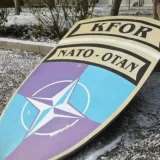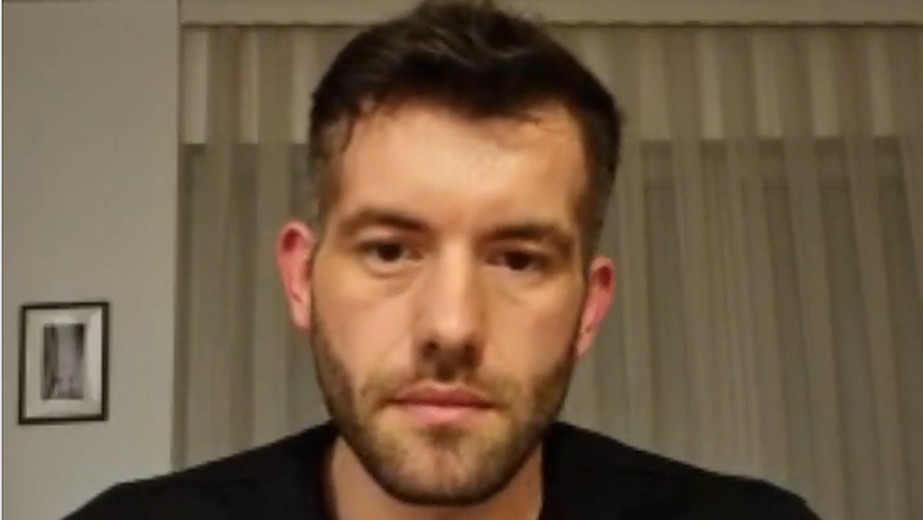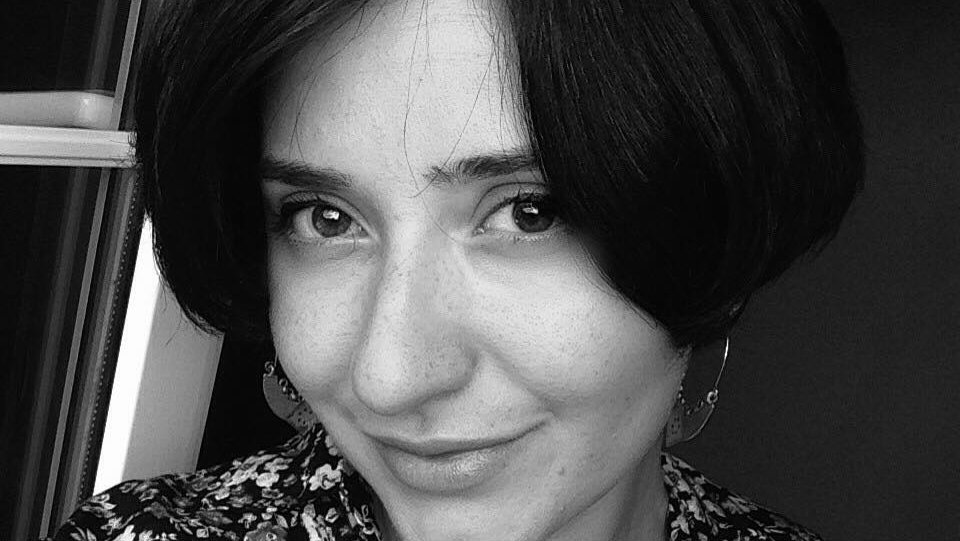
Imam zaista jak osećaj da su mladi ljudi iz Srbije i sa Kosova budućnost dugo traženog mira među zemaljama.
To ocenjuje Leonora Aliu, prištinska novinarka, u razgovoru za Danasov projekat „Druga strana Kosova“, koji ima za cilj da približi kosovskoj i srpskoj javnosti informacije koje nisu plasirale političke elite, ni s jedne strane, već nezavisni građani, kao i povezivanje kosovske i srpske kulturne scene koja je nedovoljno zastupljena u medijima.
* Šta bi, prema Vašem mišljenju, trebalo najpre i prioritetno učiniti kako bi se odnosi Srbije i Kosova normalizovali?
Suočavanje sa prošlošću i sa njenim žrtvama.
Kada je prvi put otpočet dijalog, pokrivala sam svaki pojedinačni sastanak i želim da budem veoma iskrena – bila sam skeptična da će ovaj proces odvesti zemlje negde, a da postoji i razlog za to – niko nije govorio o žrtvama prošlosti.
Više od 13.000 ljudi je ubijeno ili je nestalo tokom rata. Više od 1.500 – većina njih Albanci, ali i Srbi i Romi se još uvek vode kao nestali. Bol porodica i voljenih osoba traje čak 20 godina nakon rata. Ono što traže je pravda.
Svedoci smo nekoliko potpisanih sporazuma od kako je dijalog započet a većina njih nije sprovedena u praksi. Nijedan od njih se ne bavi glavnim razlogom, dok se predmeti ratnih zločina ne mogu procesuirati na kosovskim sudovima i zašto počinioci ne mogu biti uhapšeni i suočeni sa pravdom. Pošto Srbija ne priznaje Kosovo, postoji toliko prepreka za saradnju pravosudnog sistema obe zemlje.
S druge strane, bez suočavanja sa ovim slučajevima i bez pravde za žrtve i njihove porodice ne vidim nikakvu nadu za bilo kakvu normalizaciju odnosa između dve zemlje. Sporazum o saradnji između Državnog tužilaštva Kosova i onog u Srbiji bio bi ključ za otvaranje vrata koja bi pre svega dovela do više poverenja u dijalog između Kosova i Srbije, a zatim, nadamo se, i produktivnosti.
* Šta mislite o procesu normalizacije koji trenutno sprovode vlasti u Prištini i Beogradu?
Kao što rekoh, primećujem nedostatak poverenja sa obe strane. Teško je poverovati da može biti bilo kakvog napretka s obzirom na trenutnu klimu u dijalogu.
* Da li je moguće da će proces normalizacije okončati političke elite koje su bile aktivne tokom sukoba 1990-ih?
Verujem da da. Morate da znate da je trenutna politička šema na Kosovu u velikoj meri šema stvorena od političkih elita iz 90-ih. Čak i u opozicionim partijama na Kosovu imate te političke ličnosti, ali kada je u pitanju tema vođenja „velikih političkih procesa“, nekako imam osećaj da bi čak i EU radije nastavila i završila razgovore, recimo sa Hašimom Tačijem pre nego sa Albinom Kurtijem.
Znate, ovo nije samo proces normalizacije, to je i proces suočavanja. Suočavanje s trenutnim političkim liderima koji su bili prisutni i aktivni 90-ih; suočavajući se s međusobnim razlikama i pronalazeći način da normaliziraju odnose učilili bi to da se mlađe generacije u prošlosti više ne moraju sučeljavati sa zločinima svojih vođa.
Takođe, ako se osvrnemo na trenutnu političku situaciju u obe zemlje, iskreno ne vidim nikakvu volju opozicijskih stranaka na Kosovu ili u Srbiji da zaista preuzmu pregovore.
Na Kosovu postoji percepcija da šta god se dogodi na kraju dijaloga, Kosovo će iz nje uzeti manje od Srbije, zbog procesa integracije u EU i načina na koji se ona razvijala, a nitko iz opozicije ne bi voleo držati taj “vruć krompir” u ruci.
* Da li na Kosovu postoji nezavisno novinarstvo i sloboda medija, i koje su najveće prepreke sa kojima se novinari susreću?
Kao što znate, živimo u delu Evrope gde se sloboda medija smatra nestalom u određenim državama. Ako se osvrnemo na Svetski indeks slobode medija Reportera bez granica, ove godine možete se videti da Kosovo stoji bolje nego prošle. Međutim, postoje prepreke a one su iste kao u Srbiji i ostalim zeljama na Balkanu.
Nezavisnost medija se odnosi na to ko ih finansira i ko ih osniva. Jedan od načina koji su se pokazali uspešnim u zaštiti nezavisnosti medija je način finansiranja putem donatora, posebno donatora vezanih za EU.
Prema tome, mogu da kažem da se ovih dana na Kosovu najpoverljiviji i najnezavisniji mediji smatraju onima koji se finansiraju putem donatora, tako što imaju aktivnu nevladinu organizaciju. Oni proizvode medijske sadržaje a ne prihvataju novac od vlade ili bilo koje političke stranke ili poslovnog subjekta povezanog sa političarima.
Jedan od najvećih i najprofesionalnijih medija, po mom mišljenju, jeste Balkanska mreža istraživačkog novinarstva u Prištini (BIRN). Ali postoje još neki nezavisni mediji koji dobro rade.
* Kako ste postali novinarka, šta Vas je inspirisalo?
Mama mi je ispričala da sam, kada sam imala dve godine, sela sa beležnicom i olovkom ispred televizora dok su ona i tata gledali vesti. Upitala me je šta radim, i rekla mi je da sam ja odgovorila „prenosim vesti“. Od tada ne sećam se da sam pomišljala da se bilo čime drugim bavim, sem novinarstvom.
Međutim kada počnete da radite kao novinar, da odlazite na teren, upoznajete ljude, i slušate njihove životne priče, onda u stvari shvatite zašto radite to što radite.
U prvoj godini mog rada dobila sam da istražim slučaj koji je potpuno promenio način mog poimanja novinarstva.
Naime, mlada majka iz Gnjilana (grad na Kosovu) odvojena je od svoje kćerke nakon rođenja, zbog nasilja koje su roditelji njenog muža koristili nad njom.
Roditelji njenog supruga vladali su kućom u kojoj su živeli, a zbog nedostatka finansija za stan ili kuću morali su tu da borave. Oba roditelja njenog muža su bili ljudi sa vezama na sva tri nivoa pravosudnog sistema: policija, tužilaštvo i sud, i iako su oboje bili optuženi za nasilje u porodici, uspeli su da uzmu svoju unuku i odvoje bebu od mlade majke, nakon što se ona odlučila za razvod.
Mlada majka se šest godina borila sa pravosudnim sistemom kako bi vratila svoju kćer i ništa se nije dogodilo. Bila je očajna i onda je došla do medija za koje sam radila. Pitala me je da li mogu da ispričam njenu priču – njen bol. Što sam i učinila.
Priča je postala viralna jer je otkrila posledice korumpiranog pravosudnog sistema po živote ljudi. Neki zvaničnici su izgubili posao, neki ugled. Posle skoro šest meseci, više manje, bilo je davno, pre 10 godina – neko sa nepoznatog broja me je zvao. Javila sam se na telefon i čula kako ženski glas plače. Jedina reč koju razumela bila je “faleminderit”, što znači “hvala” na albanskom.
To je bila mlada majka iz Gnjilana. Njena kćerka je tog dana vraćena kući da ostane kod nje.
Od tog dana, tog trenutka kada me je majka nazvala, znala sam svoju misiju. Da pričam priče onih koji su u potrebi, priče koje imaju moć da naprave promenu nabolje. Mislim da je to ono što novinari treba da rade.
* Da li imate dobru saradnju sa srpskim kolegama?
Vrlo dobru saradnju! Trenutno radim na predlogu novog projekta koji želim da počnem sa nekim od mojih kolega u Beogradu. Mogu da kažem da jedva čekam da započnem projekat i veoma sam srećna zbog toga. Ali neću vam otkriti sve sad. Mogu reći samo da dolaze dobre stvari.
Pitanja Branka Rosića, kolumniste, novinara, pisca.
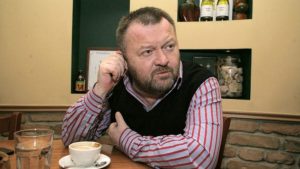
* U svim bivšim republikama Jugoslavije postoji doza jugonostalgije. Neki ljudi vole ili muziku ili knjige ili filmove iz bivše zemlje. U vezi s čim su ljudi na Kosovu jugonostalgični? Na koje stvari?
Istina je da je takozvani kulturni, ali i psihološki fenomen „jugonostalgija“ prisutan u svim bivšim jugoslovenskim zemljama, pa tako i na Kosovu.
Koliko sam shvatila iz priča, uglavnom starijih ljudi, nostalgiju izražava lokalno stanovništvo prema takozvanim „dobrim vremenima“ koja su se odvijala za vreme vladavine Josipa Broza Tita.
Jugonostalgija je povezana sa građanskom dobrobiti u Titovom periodu. Sretala sam dosta ljudi, bivših radnika javnih poduzeća ili fabrika, na primer u Mitrovici ili Kamenici, pa i u drugim gradovima Kosova, čak i u bivšim jugoslovenskim gradovima. Oni su mi objašnjavali koliko su beneficirali kao radnici u tom periodu, i koliko su radnih mogućnosti tada imali.
Mislim da je ta nostalgija, takođe, prisutna i zbog trenutne situacije.
Prema najnovijim podacima iz 2018. godine, koje je objavila Agencija za statistiku Kosova, na Kosovu je dve trećine stanovništva u radno sposobnom dobu (15 – 63 godina). Međutim, u radu učestvuje samo 40,9 procenata radno sposobnih.
Čak i oni koji su zaposleni, posebno u privatnim kompanijama, suočavaju se sa problemima kršenja njihovih prava, a neki od njih nemaju čak ni ugovore.
Zato mnogi ljudi, koji su imali koristi od komunističkog sistema u ekonomskom i socijalnom smislu, imaju razloga da osećaju nostalgiju i mislim da je to i glavni razlog zbog koga većina ljudi koje sam upoznala izražava ovu „jugonostalgiju“.
* A u vezi s čim ste Vi jugonostalgični ili ste suviše mladi za nostalgiju pa i za jugonostalgiju?
Da budem iskrena, bila sam premlada da bih pamtila dobre stvari u vezi s Jugoslavijom. Jako je tužno što moram tako da kažem, ali rođena sam 1990. a devedesete su poznate kao jako teške godine za lokalne Albance, koji su tada živeli na Kosovu, kao delu Jugoslavije.
Podignuta sam (vaspitavana) sa idejom da smo omrznuti zbog naše etničke pripadnosti i religije. To je učinilo da se ja i moji prijatelji vršnjaci osećamo nekako apatično prema Jugoslaviji. Da ne pominjem to da se rat dogodio kada sam imala samo devet godina. Mnogo mojih dragih ljudi je izgubilo članove svojih porodica, a to su jako, jako loše uspomene za dete.
Sećanje na vreme smrti, terora i straha, to je jedini način na koji se mogu prisetiti. Kako neko može da oseća nostalgiju prema teroru i smrti? Ne mislim da postoji bilo kakva mogućnost za to.
* A šta pratite iz današnje Srbije?
Mlade ljude. Ne bih povezivala svoje interese sa „stvarima“ u Srbiji ili bilo kojoj drugoj zemlji. Ljudi i kultura drugih zemalja je ono što me uvek pokreće. Imam zaista jak osećaj da su mladi iz Srbije i sa Kosova budućnost dugo traženog mira među zemaljama.
Pre dve godine posetila sam Beograd i sjajno se provela sa beogradskim kolegama.
Njihova gostoljubivost, topla dobrodošlica, ali i briga, učinili su da se osećam optimistično da će nove generacije dveju zemalja živeti u harmoniji.
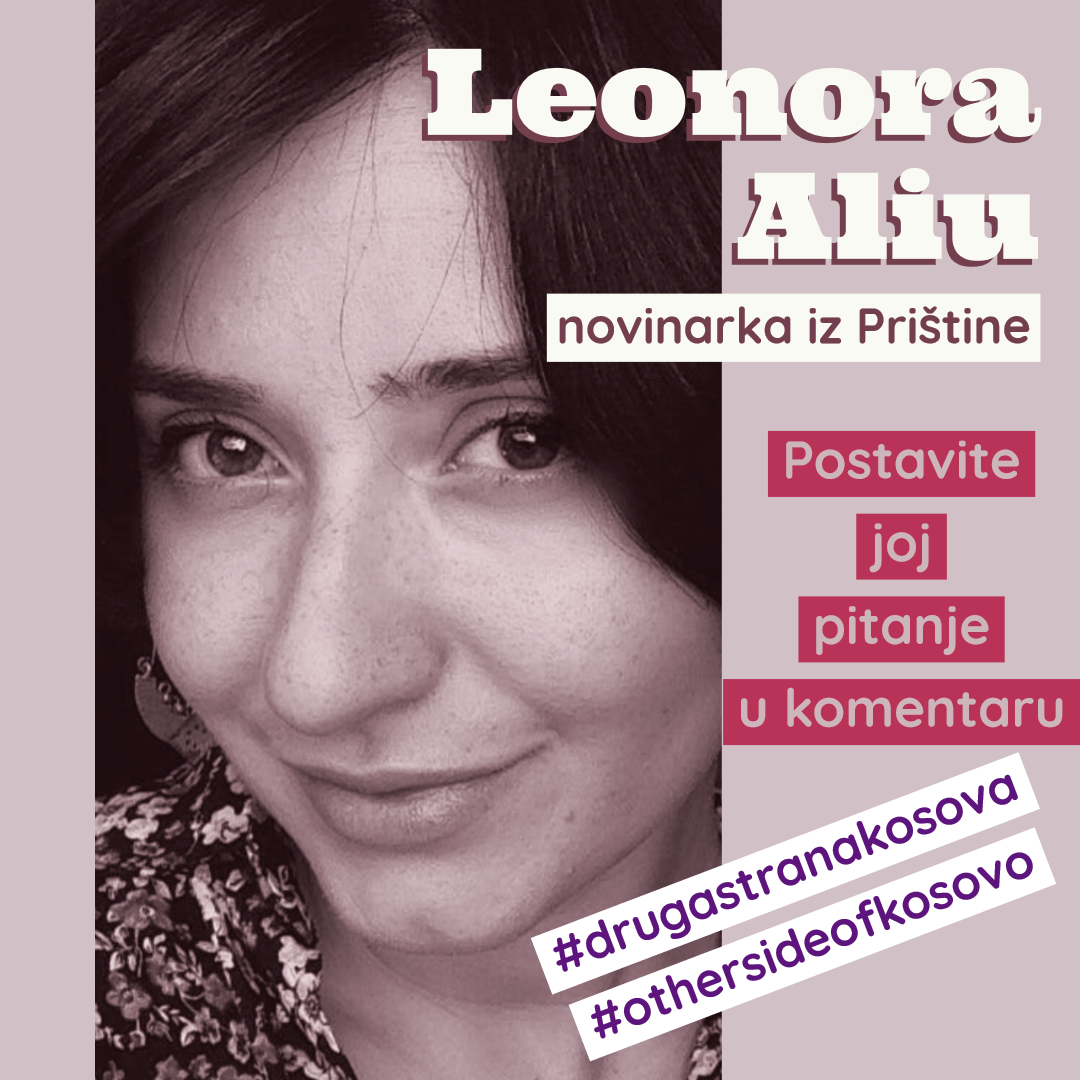
Pitanja sa društvenih mreža:
– Bili ste novinarka K2.0, kakva su vam sećanja na taj period?
Radila sam za različite medije na Kosovu.
Kosovo 2.0 je jedan od njih i kao u svim drugim medijima u kojima sam radila, imam uspomene koje mogu i želim da podelim i uspomene koje mogu, ali ne želim da delim. Hahaha. Jedine uspomene koje obično pokušavam poneti sa sobom su one koje se odnose na moje kolege novinare. Mogu da kažem da sam se odlično zabavila kao K2.0 novinarka.
– Da li je teško biti novinar u Prištini?
Ovih dana je teško biti novinar na bilo kojem mestu u svetu. Ponekad se šalim sa kolegama i kažem, mi smo tako neželjeni ljudi hahahahhaa. Ali ja čvrsto verujem da ako zaista volite svoj posao, a to je moj slučaj, i znate zašto to radite, možete prevazići sve teškoće. Mogu dodati samo ovo, sigurnije je biti novinar na Kosovu nego u većini zemalja Zapadnog Balkana, prema mom mišljenju.
– Da li je teško postaviti pitanje, na primer, Kadriju Veseljiju?
Nikada nije teško postaviti pitanje, posebno ne Kadriju Veseljiju, jer je on sada glasnogovornik Parlamenta i ima mnogo prilika kada mu novinar može postaviti pitanja. Međutim, vrlo je teško dobiti odgovor. Autokratski lideri ne žele da drugi dovode u pitanje svoje odluke, ili da im kažu da su pogrešili ili ne. Kada mediji to čine, lideri ih ignorišu namerno da bi im smanjili vrednost. Međutim, posao novinara je da postavlja pitanja, postavlja teška pitanja i pronalazi istinu svaki put kada politički lideri hoće da odgovore ili ne. Uvek postoji način da se pronađe istina i istina će uvek naći na izlaz.
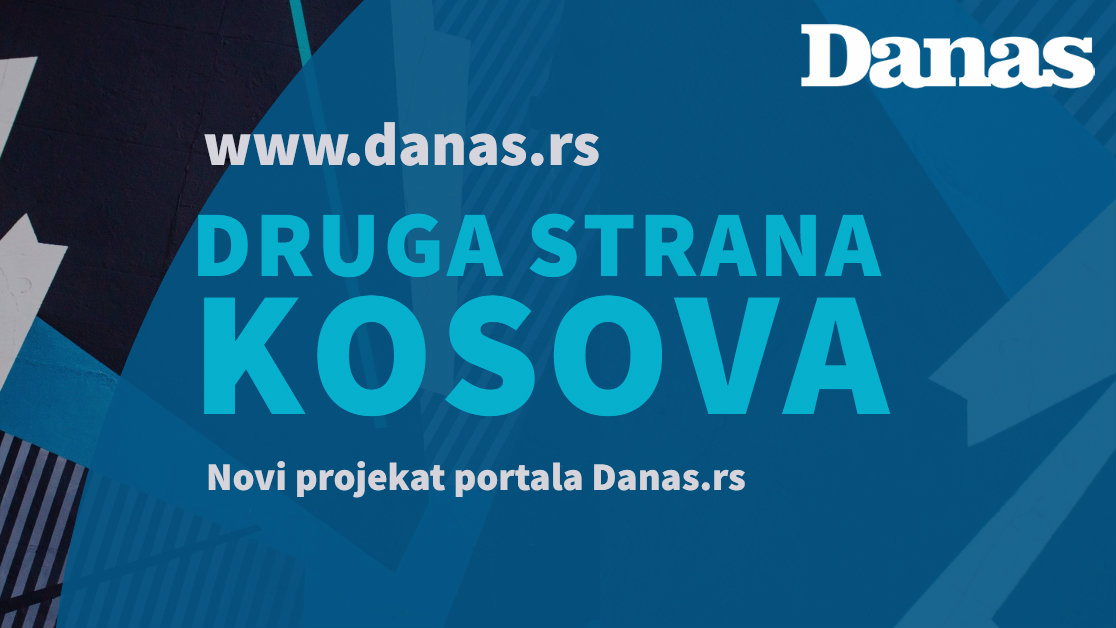
ENGLISH VERSION
*Questions of Danas daily:
– In your opinion, what should be the priorities for the sake of the normalization of relations between Serbia and Kosovo?
Confronting the past and the victims of it. When the Dialogue first started, a decade ago, and I was covering every single meeting – I want to be very sincere, I was skeptical that this process will take the countries somewhere. There was reason for the skepticism. No one was talking about the victims of the past. More than 13,000 people were killed or went missing during the war. Over 1,500 – most of them Albanians, but also Serbs and Roma people – are still missing. The pain of families and their beloved remains even 20 years after the war. What they seek is
justice. We are witnesses of several agreements that were signed since the dialogue started and most of them failed to be implemented in practice. None of them addresses the main reason, why the war crime cases cannot be processed in Kosovo’s courts and why perpetrators cannot be arrested and be confronted with the justice. Since Serbia does not recognize Kosovo there are so many obstacles for the judicial systems of both countries to cooperate. On the other hand, without facing these cases, and without justice in place for the victims and their families, I see no hope for any normalization of the relations between the two countries. An agreement of cooperation between the State Prosecutor Office of Kosovo and the one in Serbia would be the key to open the door that could lead first of all to a more trustful dialogue between Kosovo and Serbia, and then hopefully to a more productive dialogue as well.
– What do you think about the process of normalization that is currently being undertaken by the authorities in Pristina and Belgrade?
As I already mentioned, I see a lack of trust between both parties. It is hard to believe that there can be any progress with the current climate in the dialogue.
– Is it possible that the normalization of relations between Kosovo and Serbia might be achieved by the political elites that were active during the 1990s conflicts?
I believe yes. You have to know that the current political scheme in Kosovo is very much a scheme created from the political elites from the 90’s. Even in the opposition parties in Kosovo you have these political figures, however when it comes to the topic of leading the “big political processes” somehow, I have the feeling that even the EU would prefer to continue and end the talks, let’s say with Hashim Thaci, and less with Albin Kurti. You know, this is not only a process of normalization, it is also a process of confrontation. Confrontation of current political leaders that were present and active during the 90’s; confrontation of the differences between them and finding a way to normalize the relations in a way that the younger generations have not to confront anymore the wrongdoings of their leaders in the past. Also, if we look back on the current political situation in both countries, honestly, I do not see any will of the opposition parties in Kosovo or Serbia, to actually take over the talks. There is a perception in Kosovo that whatever happens in the end of the dialogue, Kosovo will take less than Serbia from it, because of the EU integration process and the way it developed, and no one from the opposition would like to hold that “hot potato” in their hands.
– Is there an independent media in Kosovo and what are the biggest obstacles journalists face? – What forms of censorship are most likely to be imposed?
As you know we live in the part of Europe were freedom of the media is considered “vanished” in some states. If we look back at the World Press Freedom Index by Reporters Without Borders from this year, you can see that Kosovo is ranked better than last year. However, there are obstacles and those are quite the same as those you have in Serbia or other countries in the Balkans. The independence of the media is related to their finances and their founders. One of the ways that has proved successful in protecting the independence of media is financing through donors, especially EU related donors. Therefore, I can say that these days in Kosovo the most trustful and independent media are considered those who are being financed through donors by having an active NGO and producing media content because they do not accept money from the Government or any political party or business related to a politician. One of the biggest and most professional, in my opinion, is the Balkan Investigative Reporting Network in Pristina (BIRN). But yes, there are some independent media that are doing a great job.
– Why did you insist on becoming a journalist, what inspired you?
I always loved to tell stories, but I didn’t know why it was so important, until one day.
My mom told me that I was only two years old when I took a notebook and a pen and sat in front of the TV while she and my dad were watching news. When she asked me what I am doing, she told me that I answered with: “I am telling the news”. Since then I don’t remember that I have been thinking of studying or doing something else, except journalism. However, when you start working as a journalist, going in the field, meeting the people, when you hear their stories, these are the moments when you realize and start to understand why you are doing what you are doing. There is a case I investigated, in the very first year when I started working as a journalist, a case that completely changed the way I think about being a journalist. There was this young mother from Gjilan (a town in Kosovo) that was separated from her daughter, after she was born, because of the violence her husband’s parents used against her. They were in charge of the house they were living in together since they couldn’t afford a place of their own. Both of her husband’s parents were well connected people on all three levels of the justice system: the police, the prosecutor officeand the court and even though they were both accused of domestic violence they managed to get their niece under their care and separate the baby from the young mother after she decided to divorce. The young mother fought for 6 years with the justice system in order to take her daughter back and nothing happened. She was desperate and then she came to the media outlet I was working for, asking me if I can tell her story – her pain. And so, I did. The story went viral by exposing the consequences of the corrupt justice system in people’s life. Some officials lost their jobs, some their reputation. After almost 6 months I think – I cannot remember if there were less or more months since this happened 10 years ago – someone with an unknown number called me. I responded and I could hear a female voice crying. The only word I understood was “faleminderit” which means “thank you” in Albanian. It was the young mother from Gjilan. Her daughter arrived that day to her house where she was sent from the state to stay under her mother’s care for the rest of their days together. From that day, that moment when the mother called me, I knew my mission. I would be the one who would tell the stories of those in need, the stories that have the power to make the change for the better. I believe this is what journalists should do.
– Do you have good cooperation with your Serbian colleagues?
Very good cooperation! Right now, I am working on a proposal for a new project I want to start with some of my colleagues in Belgrade. I can say, I can’t wait to start the project and I am very happy for it. But won’t tell you more right now! :) I can say that good things are coming.
Interviewed by BrankoRosić, Serbian journalist, columnist and author.
– Yugonostalgia has been felt in the former Yugoslav republics. Some people enjoy music, books or films from the former country. What things make people in Kosovo feel Yugonostalgia?
It is true that the so called cultural but also psychological phenomenon “Yugonostalgia” is present all over the former Yugoslavian countries, and somehow it is present in Kosovo as well. As far as I was able to understand it, from many stories and especially those of the elderly, this nostalgia is more often expressed by the locals when it comes to the so called “good times” during Josip Broz Tito’s ruling. It is related to citizens’ wellbeing during Tito’s time. I had the chance to meet a lot of people, former workers of public companies or factories, for instance in Mitrovica or Kamenica or even other cities in Kosovo but also abroad – in former Yugoslavian cities –and they all explained to me how much they benefited as workers during those times and the opportunities for work they had back then. I believe this nostalgia is also alive because of the current situation. In Kosovo two – thirds of the population are within the working age (15 – 63 years old). However, participation in the workforce is within the working age is only at 40.9% (according to the latest data revealed by the Agency of Statistics of Kosovo in 2018). But even those who are employed, especially in private companies, face problems with violation of their rights and some of them don’t even have contracts. So yes, there is reason for many people who benefited from the communist system in the economic and social welfare aspect to feel nostalgic and I think this is also the main aspect about which most of the people I met have expressed this “Yugonostalgia”.
– In relation to what things do you feel Yugonostalgia, or you are too young to feel any kind of nostalgia, including yugonostalgia?
The truth is that I am very young to remember the good things from Yugoslavia. It is a sad thing to say, but I was born in the 1990 and the 90’s are known as very difficult years for Albanians living at that time in Kosovo as part of Yugoslavia. I was raised with the idea that we are hated because of our ethnicity and our religion, and this somehow made me and some of my friends my agefeellet’s say an apathy of some kind about Yugoslavia. And not to forget to mention what happened in the later years. When I was only 9 years old the war happened. Many of my beloved people lost their family members. These are extremely bad memories for a kid. Memories of a time of death, terror and fear and this is the only way I can remember it. How can someone feel nostalgic about death and terror? I don’t think there is any possibility.
– What things are you interested in today’s Serbia?
The young people. I wouldn’t connect my interest with “things” in Serbia or any other country. The people and the culture of other countries is what always triggers me. I have a strong feeling that the young people of Serbia and of Kosovo, are the future of the long seeking peace between the two countries. I was in Belgrade two years ago and I had a wonderful time with colleagues from Belgrade. Their hospitality, very warm welcome but also their care made me feel very optimistic that the new generations of the two countries will live in harmony.
Social network questions:
– You were a K2.0 journalist, what are your memories?
I have been working for different media outlets in Kosovo.
Kosovo 2.0 is one of them and as in all other medias I have been working, I do have memories I can and want to share and memories I can but don’t want to share. Hahaha. The only memories I usually try to take with me are those related with my journalist colleagues. I can say that I had a great time with K2.0 journalists.
– Is it difficult to be a journalist in Pristina?
It is difficult to be a journalist in any place these days. I sometimes joke with my colleagues and say, we are such unwanted people.Hahaha. But I strongly believe that if you really love your job, and this is my case, and you know why you are doing it you can overcome all difficulties. I can add only this thing, it is safer to be a journalist in Kosovo then in most of the countries of the Western Balkans, in my opinion.
– Is it difficult to ask a question, for exemple, to Kadri Veselji?
It is never difficult to ask a question, especially not to KadriVeseli, since he is the spokesperson of the Parliament now and there are many occasions when a journalist can ask him questions. But, it is very difficult to get an answer. Autocratic leaders don’t want others to question their decisions, or to tell them they are wrong or right. When the media does this, those leaders ignore them on purpose to make them value less. However, the job of a journalist is to make the questions, difficult questions, and find the truth whenever the political leaders answer or not. There is always a way to find the truth and the truth will always find its way out.
Pratite nas na našoj Facebook i Instagram stranici, ali i na X nalogu. Pretplatite se na PDF izdanje lista Danas.



